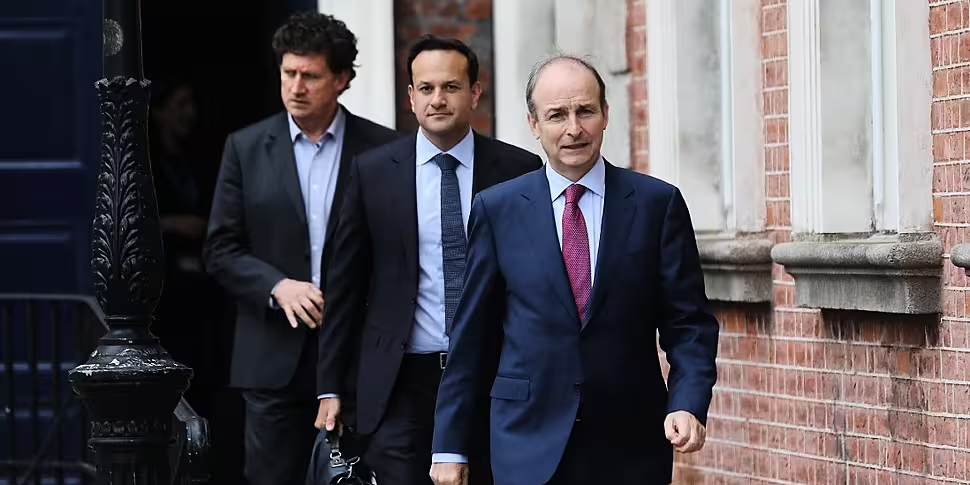It has been six months since Fianna Fáil, Fine Gael and the Green Party signed off on the 'Our Shared Future' Programme for Government.
In it, the coalition parties pledged to reform and reimagine public life.
Among topics it covered are greater diversity and gender equality in local government, reform of the Oireachtas - as well as electoral reform.
In a similar vein they promised Constitutional reform - with referendums planned on housing and extending the presidential vote to Irish citizens abroad.
But in the more immediate term, the parties want to make a difference in people's lives today.
Green light: Action on Climate Action
A success story, so far, has been their approach to climate action.
The parties committed to an average 7% per annum reduction in overall greenhouse gas emissions from 2021 to 2030 - that's a 51% reduction over the decade.
The ball has only just started rolling, but thanks to Budget 2021 this part of the plan is well underway.
It was announced that the carbon tax on fuel increased by €7.50 from €26 per tonne to €33.50 per tonne.
The increase was applied to auto fuels, and will come into effect for solid fuels in May.
Motorists are among the groups set to see the most significant changes for 2021.
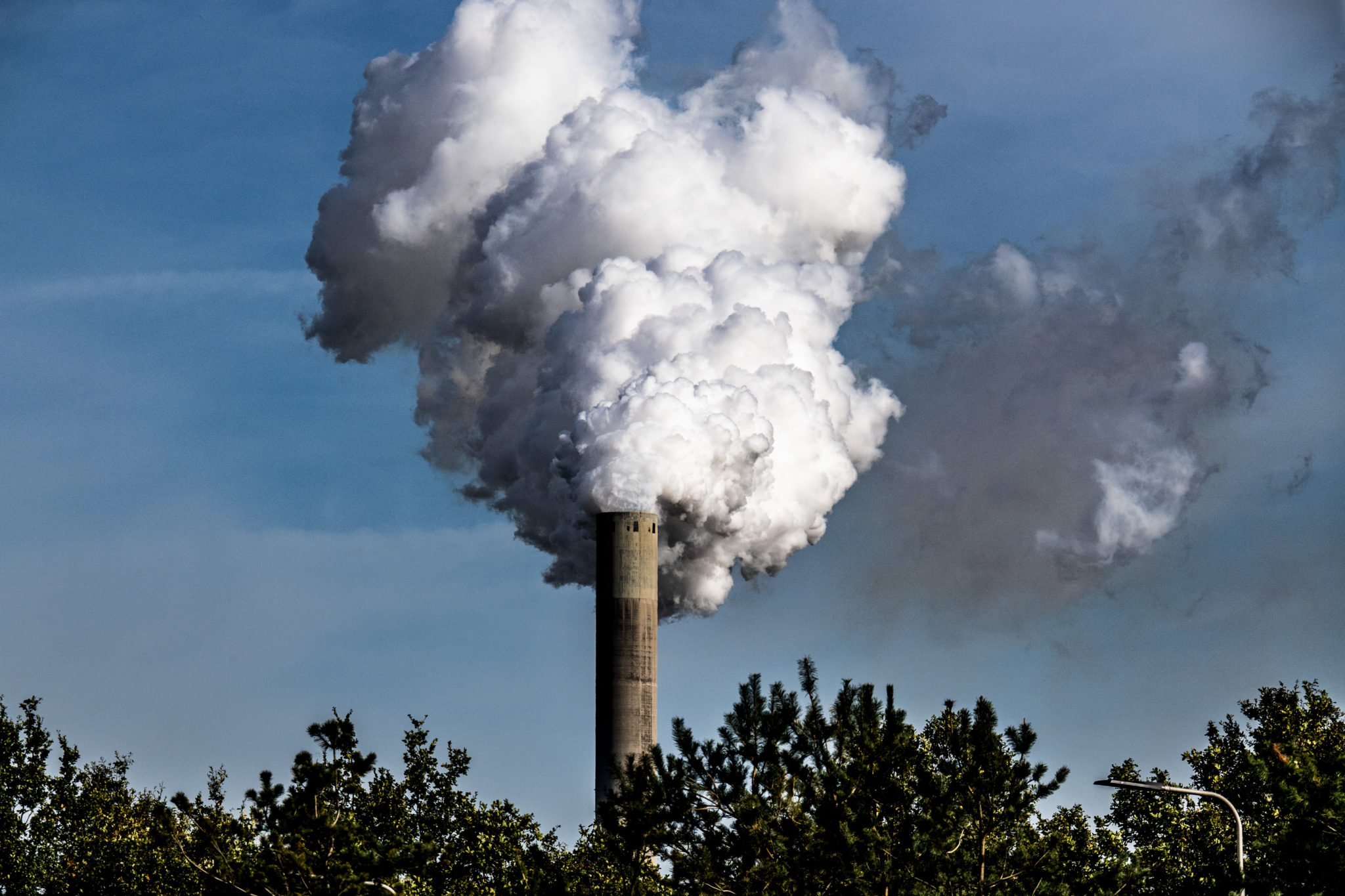 Smoke comes out of a chimney near Harbour of Amsterdam in Amsterdam, Netherlands on October 8, 2018. (Photo by Robin Utrecht/Sipa USA)
Smoke comes out of a chimney near Harbour of Amsterdam in Amsterdam, Netherlands on October 8, 2018. (Photo by Robin Utrecht/Sipa USA)Motor tax rates are going up for the most pollutant cars, while there is a third motor tax table for cars registered from January taking new emissions tests into account.
There are also changes to vehicle registration tax (VRT) based on emissions, with the changes aimed at incentivising people to buy low emission cars.
While a second carbon budget is set for 2026-2030, the parties say they are not yet in a position to "identify all the emerging technologies, changing scientific consensus or policies to meet our full ambition."
Red light: Housing and homelessness
And then there was the promise of an Affordable Housing Scheme to be implemented by September.
In the Programme for Government, the parties laid out: "We believe that home ownership should be within reach of all our citizens.
"We will bring forward measures over the lifetime of the Government to enable home ownership for more people through increased supply and interventions that make home ownership more affordable.
"An overriding objective of our housing policy is to make homes more affordable", they said.
As part of this, there were plans for a State-backed affordable home purchase scheme, provide seed capital to local authorities to provide serviced sites at cost in towns and villages to allow, and to strengthen the Mortgage to Rent scheme.
Again several targets are on the longer side of 2021 - with plans to increase the social housing stock by over 50,000 up to 2025.
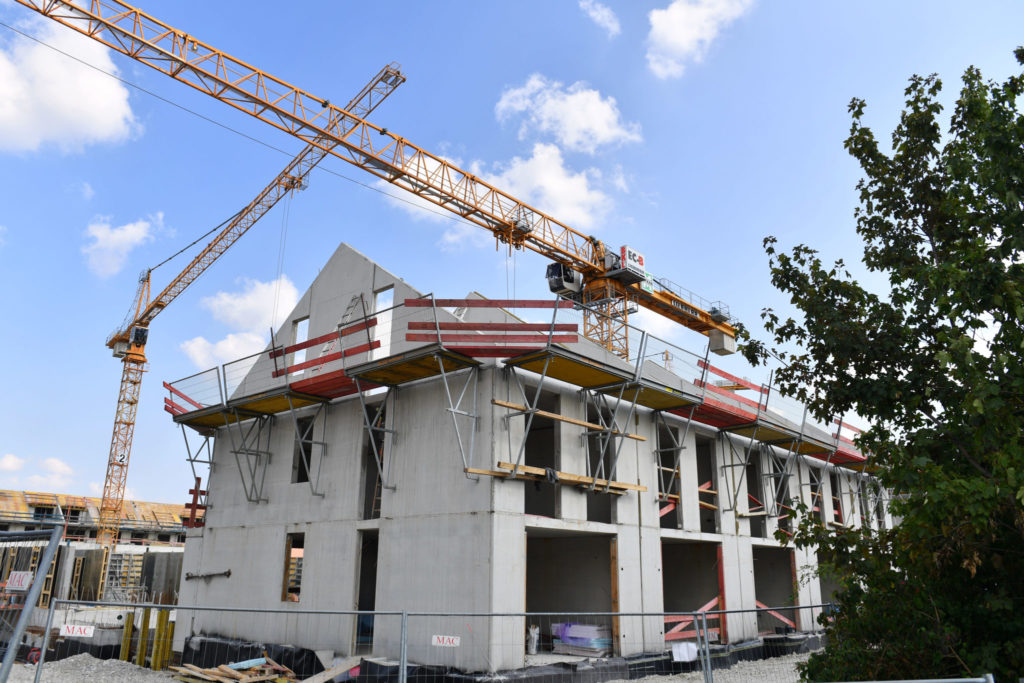 Construction workers on a large construction site, workers, new apartments, shell construction, scaffolding, row house, row houses, construction industry, new building in Vaterstetten / Ebersberg: building, property, new building, residential construction, rental apartment, rent, construction boom, rental house, build, construction, construction industry, property, Real estate, construction, metropolitan area, city, construction site, Speckguetrel, surrounding area Muenchen, | usage worldwide
Construction workers on a large construction site, workers, new apartments, shell construction, scaffolding, row house, row houses, construction industry, new building in Vaterstetten / Ebersberg: building, property, new building, residential construction, rental apartment, rent, construction boom, rental house, build, construction, construction industry, property, Real estate, construction, metropolitan area, city, construction site, Speckguetrel, surrounding area Muenchen, | usage worldwideHowever as of yet no real change has happened in the area of housing.
In fact, figures for September show that there was just a 0.3% increase on the number of exits from homelessness recorded in the year to date.
Budget 2021 allotted €218m in funding for homeless services - up from €166m for 2020.
While in July, as part of the Stimulus Programme, Housing Minister Darragh O'Brien announced over €40m for the refurbishment of voids.
This is being used to bring properties back into use and will allow these homes to be allocated by local authorities.
This includes allocations to households in emergency accommodation.
Some 2,449 units were approved for funding by the end of October, with 285 units specifically for allocation to homeless households.
Sinn Féin spokesperson on housing Eoin Ó Broin said nothing has really changed.
"Unfortunately the official figures from the Dublin Region Homeless Executive published at the end of October show a steady increase in the number of families presenting as homeless after the initial lockdown was lifted this summer.
"In March and April this year, the figures dipped slightly with 123 families presenting in March and 76 families in April, down from 171 in February.
"There was a 48% increase in the number of families presenting from May to June this year.
"From a low of 76 families in April, August saw 159 families presenting, an increase of 109%.
"These figures don’t include the hidden homeless - people sofa surfing, people surviving in overcrowded accommodation, and people who have their leave to remain but are stuck living in direct provision because they cannot find anywhere to rent."
"More needs to be done to prevent households from entering homeless services in the first place."
Orange light: Health and COVID-19
Universal Health Care is on the way, so it would seem.
It was part of the Programme for Government that there would be increased homecare hours, extended free GP care and reduced prescription charges.
This, and other measures, were also to be implemented "over the term of the Government" - meaning we are not even one year into this ambitious plan.
However the coronavirus crisis has changed the approach somewhat.
Back in late June, Health Minister Stephen Donnelly said it has to be 'accelerated' in response to the pandemic.
He said while the Sláintecare plan is still the main route to reform, the coronavirus pandemic is a 'complicating factor' for a healthcare system that was already facing big challenges.
He said: "COVID has created a perfect storm.
"It means we need a very large amount of additional spending, money that could have been deployed on other parts of the healthcare system. The waiting lists have shot way up - the inpatient waiting list since March has gone up by almost a third.
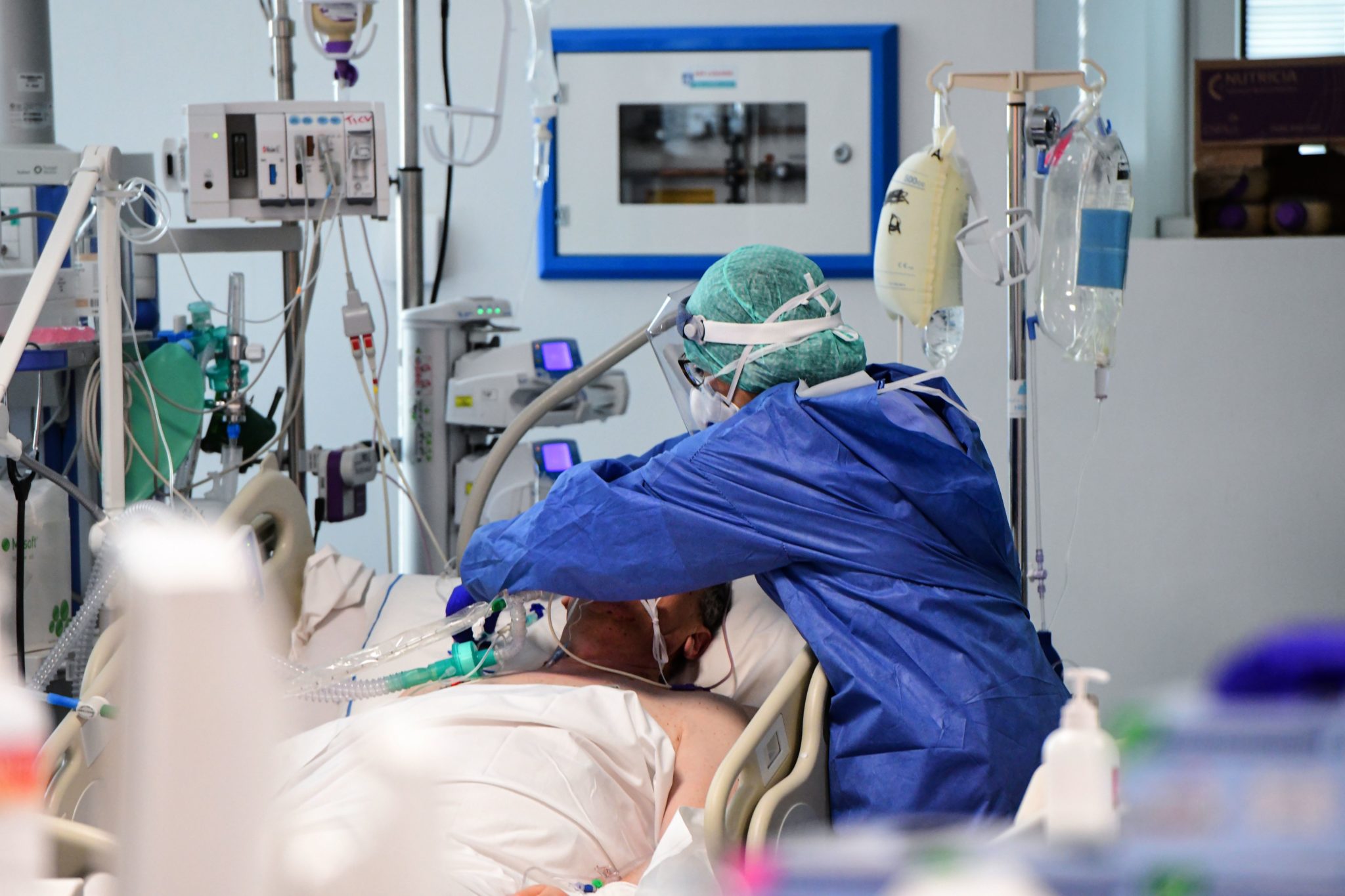 A medical worker wearing a face make and protection gear tends to a patient inside the new coronavirus intensive care unit of the Brescia Poliambulanza hospital, Lombardy, on March 17, 2020. (Photo by Piero CRUCIATTI / AFP) (Photo by PIERO CRUCIATTI/AFP via Getty Images)
A medical worker wearing a face make and protection gear tends to a patient inside the new coronavirus intensive care unit of the Brescia Poliambulanza hospital, Lombardy, on March 17, 2020. (Photo by Piero CRUCIATTI / AFP) (Photo by PIERO CRUCIATTI/AFP via Getty Images)"Even more damaging potentially... the infection control measures that are now required because of COVID means our capacity has gone way down.
"People who run MRIs are saying in some case they'll be able to see half the number of patients."
On key areas, Minister Donnelly said: "We need to expand the capacity within the HSE - that means running the operating theatres and diagnostic suites longer; getting everything we can out of the primary care centres; really ramping up on telemedicine.
"We need to secure short-term capacity from outside the HSE - a strategic partnership with private providers. To give you a sense of the challenge we're dealing with... there are about 11,000 in-patient beds in the public system - we now have to keep around 20% of them vacant for infection control measures.
"The third thing we need to do is not just continue with Sláintecare and the mission of universal healthcare, but we need to accelerate it."
Labour Party Leader Alan Kelly said more needs to be done in terms of contact tracing.
"What is clear from the rapid increase in COVID-19 cases is that our tracing system and measures in place to restrict transmission of the disease needs to be ramped up to ensure we can clamp down on new cases as quickly as possible.
"That means more mass testing in locations where outbreaks occur, mandatory testing at our airports, and the use of rapid antigen testing in schools and other work settings to quickly identify new and emerging cases."
Orange light: Childcare
Children and childcare was another topic high on the Government's agenda.
It pledged to reduce the cost of childcare for parents through investment in the National Childcare Scheme, and also to examine further options to achieve this.
It is also working to implement the 'First 5 Strategy' for babies, young children and their families.
This recommends the examination of new funding models for childcare, and new poverty prevention measures.
The strategy was first published in November 2018, followed by an initial three-year implementation plan.
But the Government itself has said that it has not reached its targets in relation to this strategy.
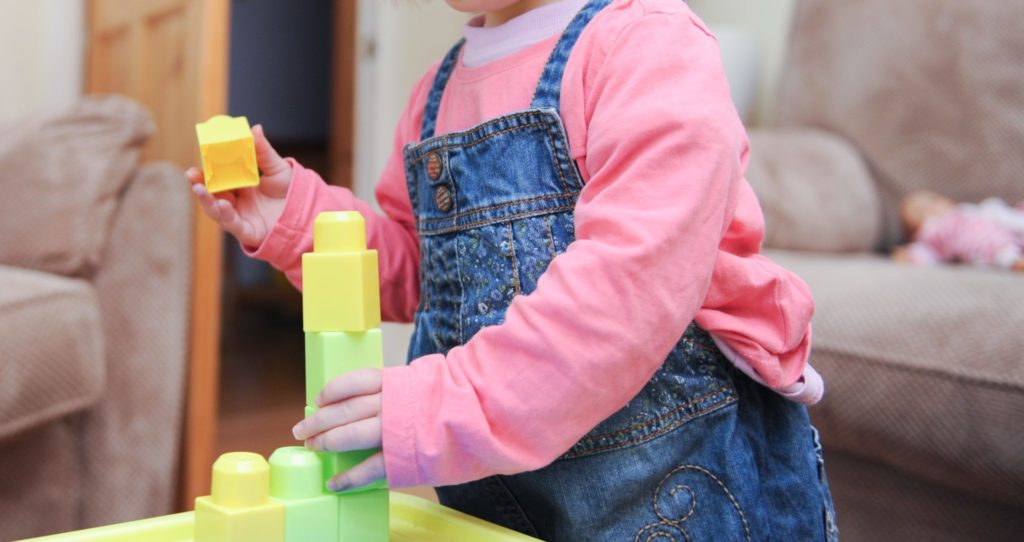 A young girl playing with multi-coloured building blocks. Picture by: Geoff Kirby/EMPICS Entertainment
A young girl playing with multi-coloured building blocks. Picture by: Geoff Kirby/EMPICS EntertainmentIn November, Children's Minister Roderic O'Gorman published its annual implementation report for 2019.
At that point, the report found some 10% of its 2019 commitments were not met.
But it wasn't all bad news: it did reach targets in relation to the introduction of a new entitlement to paid parents leave, and extended entitlements to unpaid parent leave.
There was also a range of new measures to promote healthier childhoods.
Minister O'Gorman said: "The Programme for Government re-affirmed a commitment to full implementation of First 5 and places children and families at the heart of our work.
"We are continuing to make good progress."
Social Democrats spokesperson for children, Jennifer Whitmore, said the 2021 budget missed an opportunity.
"Our childcare system fell apart on its first major test in the early stages of COVID-19.
"The privatised, under-resourced model which successive governments have created was never fit for purpose."
"The systemic weaknesses were shown up in the pandemic, including very poor wages, lack of sick pay, poor progression routes and poor profitability for the providers.
"It became clearer that it is a broken system that doesn’t work for children, for parents or for early educators."
She added: "The Government badly failed in Budget 2021 to seize the opportunity to re-imagine our childcare system.
"This was a once in a generation opportunity the Government should have taken to rebuild a system that worked for children, for families, for employers and for the workers in the childcare system."


